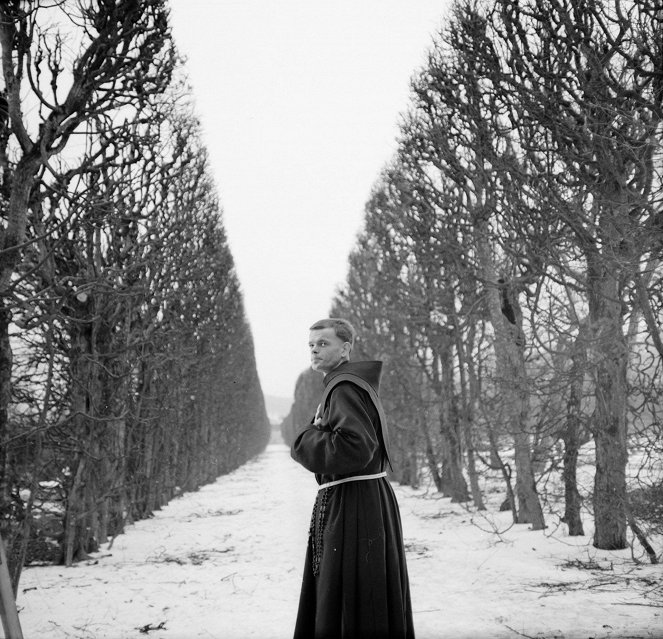Regie:
Štefan UherDrehbuch:
Alfonz BednárKamera:
Stanislav SzomolányiMusik:
Ján ZimmerBesetzung:
Hana Maciuchová, Alexander Brezina, František Bubík, Irma Bárdyová, Kamil Marek, Jozef Hodorovský, Tomás Tobák, Luisa Grossová, Albert AugustínyInhalte(1)
A drama set in the Slovak Republic during the WW II. A young Polish soldier, a talented organ-player, hides from the fascists in a monastery in a small Slovak town. Here the choir-leader lacking talent is envious of Felix´s musical skills and his malevolence makes Felix leave his secure shelter among the monks. (Verleiher-Text)
Kritiken (2)
Although Organ does not belong to the group of famous titles associated with the New Wave, nor has it ever entered the wider audience's consciousness, over time I perceive it as one of the most artistically remarkable Czechoslovak films of the 1960s. It cannot be recommended at first sight, as it has an intimate and artistic nature. Its atmosphere is significantly influenced by extensive connection with baroque music, which helps to emphasize the monastery environment and the fatefulness of the situation in which its residents find themselves. The placement of the story in the period of the Slovak clerical-fascist state is also interesting, as not many films of this kind were made. The film avoids the usual ideological stereotypes of that time, and the character of the abbot, who finds himself in a difficult situation, is deeply human - by helping a refugee, he risks not only his position but also the fate of the entire community. Overall impression: 85%.
()
Das Zuschauererlebnis ist außerordentlich anspruchsvoll, unübersichtlich und uninteressant. Aber natürlich kann man die ganze negative Erfahrung mit lauter Lobhudeleien umschreiben, wie zum Beispiel im Kontext der Vorbereitungen auf Das Geschäft in der Hauptstraße in der Linie der slowakischen Erstlingswerke. Aber es wurde damals schon geschrieben, dass es ein sehr slowakischer Film sei, slowakischer als alles, was im letzten Jahrzehnt entstanden ist. Das kann aber auch als interner Film gelesen werden, der so eigenwillig ist, dass er selbst mit der westlichen Hälfte des Landes nur sehr begrenzt kommunizieren kann. In jedem Fall ist Organ ein wichtiger Meilenstein im Rahmen der Darstellung des slowakischen Staates. Der Zuschauer, der bisher nur mit Romeo, Julia und die Finsternis konfrontiert wurde, wird verwirrt sein. Und schließlich war auch für die lokale Debütantin Hana Maciuchová die Teilnahme an der Produktion dieses Films eine zweite Sackgasse.
()

